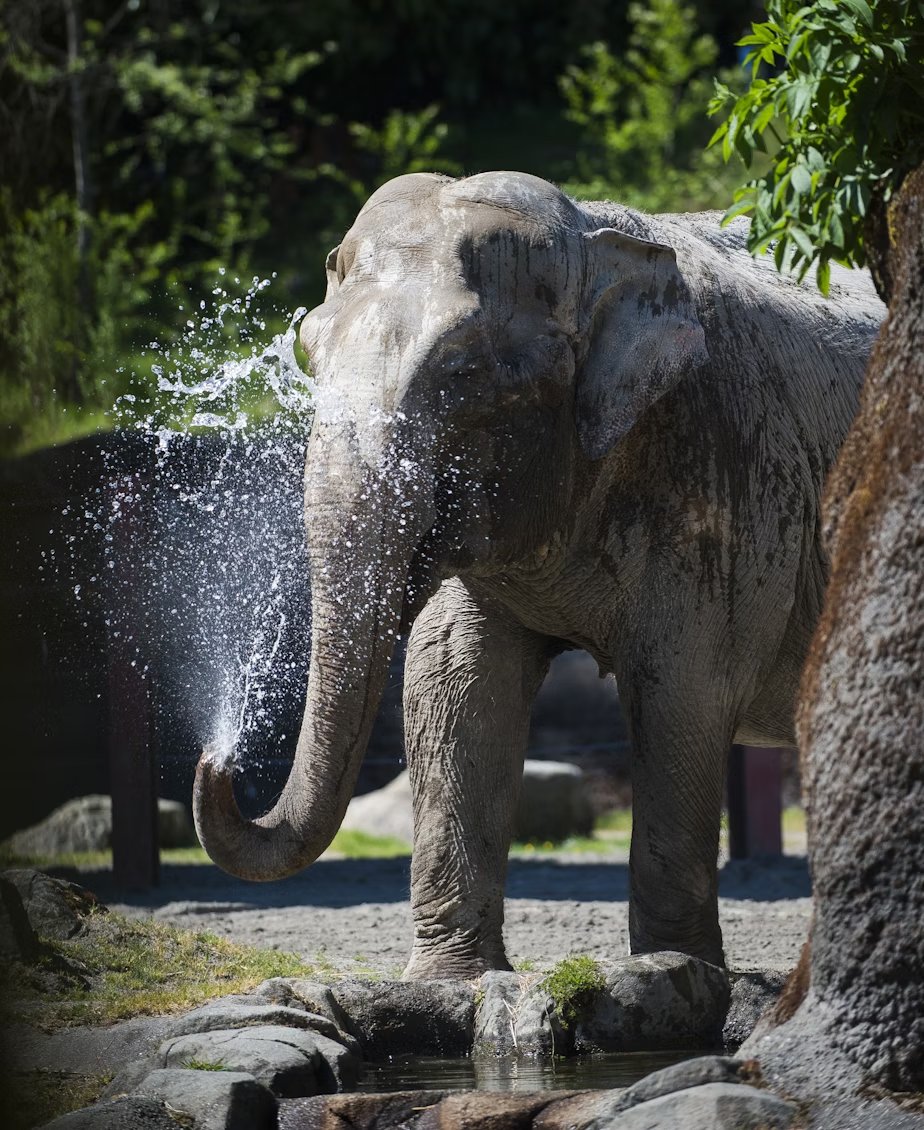Point Defiance Zoo mourns loss of beloved elephant Suki

Suki, a former circus elephant and resident of Point Defiance Zoo and Aquarium in Tacoma, has died after nearly 28 years at the facility. Dr. Karen Wolf, the head veterinarian at the zoo, said Suki was the last elephant in captivity in Washington state.
The Asian elephant arrived at the zoo in 1996 and was under protected contact, allowing her keepers to work with her using positive reinforcement. This method meant Suki was rewarded with treats and positive attention when she cooperated during veterinary procedures, such as presenting her ear for blood draws or allowing her nails to be trimmed. Suki’s favorite treats included Brach’s pumpkin candies, mints, and Uncrustables.
RELATED: Woodland Park Zoo has a new baby boy gorilla
Wolf described Suki as intelligent and engaging.
"She was incredibly intelligent, and that's what made caring for her so special," Wolf said. "This is an 8,000-pound animal that's willing to do different behaviors to allow us to take care of her."
Suki had a unique bond with her keepers, fostering a high level of trust.
"She really kind of chose the people that she wanted to work with," Wolf said. "It really taught them a lot about compassion, about caring for an animal, about endangered species."
As an Asian elephant, Suki belonged to an endangered species, with an estimated population of an estimated 30,000 to 50,000 left in the wild.
Suki began showing signs of discomfort in recent months.
"One of the most concerning things that happened was that she began to not want to interact as much with her caretakers," Wolf noted.

Suki faced two terminal illnesses: tuberculosis and advanced uterine tumors. At nearly 60 years old, an advanced age for an Asian elephant, the staff recognized it was time to let her go.
"Suki let us know that it was time," Wolf said, acknowledging the difficult decision facing the care team. "We knew that she was experiencing some level of discomfort, and we knew that it was a set timeline that we'd be able to keep her comfortable."
Following Suki’s passing, the community expressed their sympathies through cards and on social media. Wolf emphasized the importance of Suki's legacy: "I hope that by seeing her and having little children see her and be inspired ... that they will realize there are actions that they can take individually to help conserve elephants."
Suki was laid to rest in a private area at Northwest Trek Wildlife Park, the zoo's sister facility. Point Defiance Zoo and Aquarium encouraged the community to donate in Suki's name to support Asian and African elephant conservation. The zoo aids global efforts through the Zoo Society’s Dr. Holly Reed Wildlife Conservation Fund, which supports Sumatra's forest rangers in combating poaching and reducing human-elephant conflict.
RELATED: ‘That’s not nice!’ Brown bear eats entire family of ducks in front of kids at Seattle zoo
While the zoo has phased out its elephant program, the organization is exploring new opportunities to engage the community in conservation efforts.
"Don't let her memory be forgotten,” Wolf said. “There are still things that people can do, actions that they can take to help her relatives in endemic countries."
Nearly a decade ago, on April 5, 2015, Seattle's Woodland Park Zoo bid farewell to its last two Asian elephants, Bamboo and Chai. This decision followed the Woodland Park Zoo Society Board's announcement in November 2014 to phase out its on-site elephant program after evaluating recommendations from the Elephant Task Force. The Board determined that expanding the herd to create a multi-generational group was unrealistic in the foreseeable future and would not support the broader social welfare of the remaining elephants. Chai and Bamboo were transferred to an Oklahoma facility, where both have since died.





